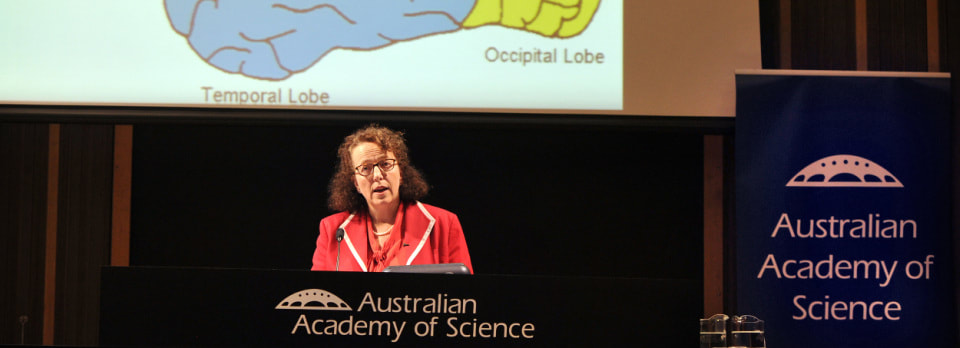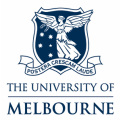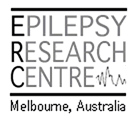About
Laureate Professor Ingrid Scheffer AO MBBS PhD FRACP FAA FAES FRS PresAHMS
Laureate Professor Ingrid Scheffer’s work has resulted in major paradigm shifts in epilepsy syndromology and classification over many years. Her work has formed the essential basis for successful gene discovery such that her larger collaborative group has been the leaders in epilepsy gene identification for 18 years since they discovered the first gene associated with epilepsy. This body of work has resulted in insights into the biology of seizures.
Professor Scheffer is Chair of Paediatric Neurology at The University of Melbourne and Senior Principal Research Fellow at the Florey Institute of Neuroscience and Mental Health. Professor Scheffer is the Immediate Past President of the Australian Academy of Health and Medical Sciences.
Ingrid and her colleagues have described a range of novel epilepsy syndromes beginning in infancy, childhood and adult life. Her work has meant that children and adults with sodium channel disorders such as Dravet syndrome and related epilepsies are diagnosed earlier and treated appropriately which improves their long term outcomes. Her recent work on a fascinating disorder occurring exclusively in females, Epilepsy limited to Females with Mental Retardation, is changing the way family histories are interpreted and will benefit affected women and transmitting men by improving genetic counseling. She has considerably expanded our understanding of the spectrum of epilepsies associated with glucose transporter deficiency; this body of work carries major treatment implications as this disorder responds to the ketogenic diet. Her work is important as it has changed our concepts of the underlying neurobiology of genetic epilepsies.
Professor Scheffer is Chair of Paediatric Neurology at The University of Melbourne and Senior Principal Research Fellow at the Florey Institute of Neuroscience and Mental Health. Professor Scheffer is the Immediate Past President of the Australian Academy of Health and Medical Sciences.
Ingrid and her colleagues have described a range of novel epilepsy syndromes beginning in infancy, childhood and adult life. Her work has meant that children and adults with sodium channel disorders such as Dravet syndrome and related epilepsies are diagnosed earlier and treated appropriately which improves their long term outcomes. Her recent work on a fascinating disorder occurring exclusively in females, Epilepsy limited to Females with Mental Retardation, is changing the way family histories are interpreted and will benefit affected women and transmitting men by improving genetic counseling. She has considerably expanded our understanding of the spectrum of epilepsies associated with glucose transporter deficiency; this body of work carries major treatment implications as this disorder responds to the ketogenic diet. Her work is important as it has changed our concepts of the underlying neurobiology of genetic epilepsies.
In 2012, Professor Scheffer was awarded the L'Oréal-UNESCO Laureate for Women in Science for the Asia-Pacific Region, and travelled to Paris to receive the award. In the past Prof Scheffer has received the 2007 American Epilepsy Society Research Recognition Award and the 2009 Eric Susman Prize from the Royal Australasian College Of Physicians. She has served the International League Against Epilepsy in many capacities and held the Chair of the ILAE Commission for Classification and Terminology from 2009 until 2013. The ILAE presented her with the Ambassador for Epilepsy award in 2013 and in the same year, she received the Emil Becker Award for an outstanding contribution to child neurology, the Australian Neuroscience Medallion and the prestigious national prize, the GlaxoSmithKline Award for Research Excellence. In 2014, she was elected a fellow of the Australian Academy of Science and an Officer of the Order of Australia (AO) in the Queen's Birthday Honours List, for distinguished service to medicine in the field of paediatric neurology as a clinician, academic and mentor, and to research into the identification of epilepsy syndromes and genes. Professor Scheffer was awarded the Prime Minister's Prize for Science together with Professor Samuel Berkovic in 2014. In 2018, Ingrid was elected a Fellow of the Royal Society.
From 2019-2022, she was elected President of the Australian Academy of Health and Medical Sciences, following her term as its founding Vice President. She recently completed a six year term sitting on the National Health and Medical Research Council.
Professor Scheffer Co-Director of the Epilepsy Research Centre at Austin Health and her private practice is located at the Victorian Children's Clinic.
From 2019-2022, she was elected President of the Australian Academy of Health and Medical Sciences, following her term as its founding Vice President. She recently completed a six year term sitting on the National Health and Medical Research Council.
Professor Scheffer Co-Director of the Epilepsy Research Centre at Austin Health and her private practice is located at the Victorian Children's Clinic.







